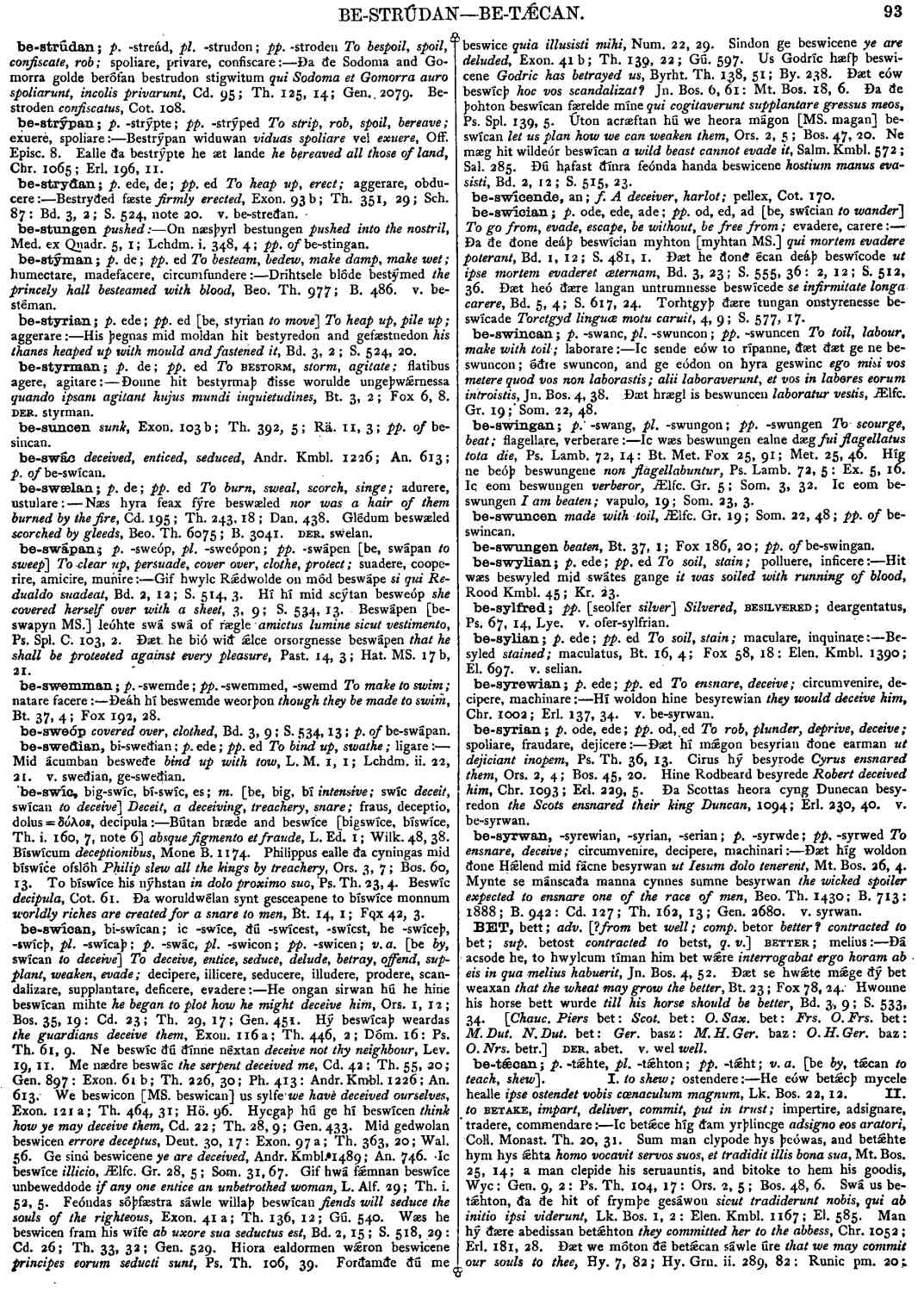be-tǽcan
- verb [ weak ]
-
He eów betǽcþ mycele healle
ipse ostendet vobis cænaculum magnum,
- Lk. Bos. 22, 12.
-
Ic betǽce híg ðam yrþlincge
adsigno eos aratori,
- Coll. Monast. Th. 20, 31.
-
Sum man clypode hys þeówas, and betǽhte hym hys ǽhta
homo vocavit servos suos, et tradidit illis bona sua,
- Mt. Bos. 25, 14; a
-
Swá us be-tǽhton, ða ðe hit of frymþe gesáwon
sicut tradiderunt nobis, qui ab initio ipsi viderunt,
- Lk. Bos. 1, 2 : Elen. Kmbl. 1167; El. 585.
-
Man hý ðære abedissan betǽhton
they committed her to the abbess,
- Chr. 1052; Ed. 181, 28.
-
Ðæt we móton ðé betǽcan sáwle úre
that we may commit our souls to thee,
- Hy. 7, 82; Hy. Grn. ii. 289, 82 : Runic pm. 20 : Kmbl. 343, 18; Hick.
Thes. i. 135.
-
Betǽcan [MS, betæcen] cildru on scóle
to send children to school;
mittere pueros in scholam,- Obs. Lun. § 4; Lchdm. iii. 184,
28.
-
Mid swiftum húndum ic betǽce wildeór
with swift hounds I pursue wild beasts;
cum velocibus canibus insequor feras,- Coll. Monast. Th. 21, 27.
-
Ic betǽce fram me
amando,
- Ælfc. Gr. 47; Som. 48, 35.
Bosworth, Joseph. “be-tǽcan.” In An Anglo-Saxon Dictionary Online, edited by Thomas Northcote Toller, Christ Sean, and Ondřej Tichy. Prague: Faculty of Arts, Charles University, 2014. https://bosworthtoller.com/4029.
Checked: 0